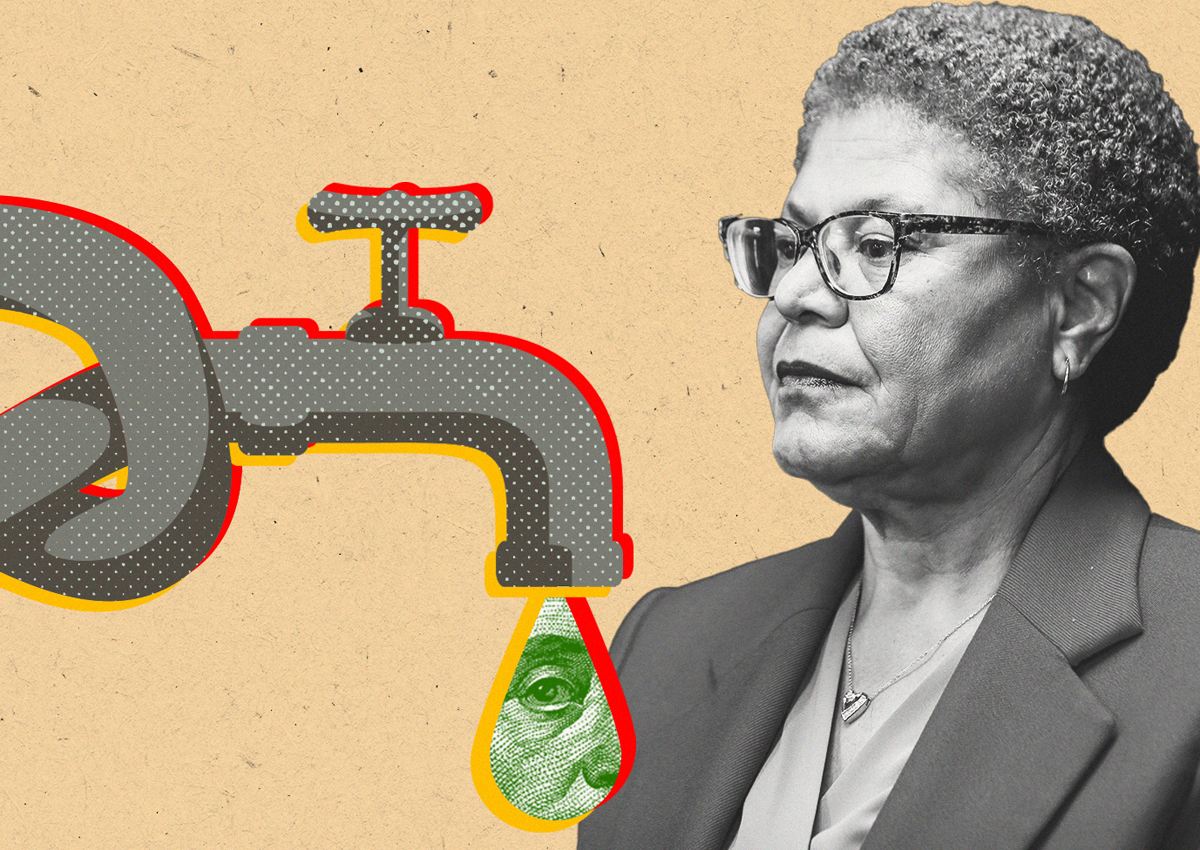Los Angeles has finally opened the floodgates from Measure ULA, allocating $150 million for affordable housing, rental assistance and efforts to keep people in their homes.
The City Council passed the spending plan for funds raised by the city’s co-called “mansion tax,” marking the first time funds were targeted since the measure passed in November, the Los Angeles Times reported.
The money will be spent on short-term emergency rental assistance, eviction defense, tenant outreach and education, tenant protections, cash assistance for low-income seniors and disabled residents and affordable housing development.
“This is the largest source of revenue, that’s going to be consistent, that this city has access to for these uses ever,” Councilwoman Nithya Raman told the Times. “It’s really transformative for Los Angeles.”
Since April, the tax has raised $55 million — so the city can’t spend the full $150 million until the tax generates $150 million. Over time, it’s not clear which spending category, from rent help to affordable housing, will get funding priority.
Of the $150 million, $23 million will go toward eviction defense, $23 million will go toward income support for rent-burden seniors, and $18.4 million will go toward rent debt assistance, according to the Times. The allocation for affordable homes was not disclosed.
The first program will be emergency rental assistance, which starts Sept. 19.
Measure ULA took effect April 1, charging 4 percent on residential and commercial real estate sales above $5 million and 5.5 percent on sales above $10 million.
The $55 million in tax proceeds is far below original projections of how much the tax would raise. Early proponents of Measure ULA estimated the tax would raise roughly $900 million per year.
In March, a report from the City Administrative Office lowered that number to $672 million.
But once the tax took effect, L.A.’s luxury market all but died. Only two homes sold for more than $5 million in the month of April, and the market hasn’t quite recovered since. Many luxe homeowners have decided to avoid the tax, either by not listing their homes or hiring tax specialists to locate loopholes.
As a result, Mayor Karen Bass’ first annual proposed budget for $13.1 billion projected only $150 million in revenue from Measure ULA. For nearly 10 months, the fund has been in legal limbo.
The measure has two big challenges: a lawsuit arguing that the tax is unconstitutional; and a state ballot measure that Californians will vote on next year. If the mansion tax is overturned, Los Angeles will pay back the funds raised by the tax. Either way, the full $150 million will be spent, Councilman Bob Blumenfield said.
— Dana Bartholomew
Read more



